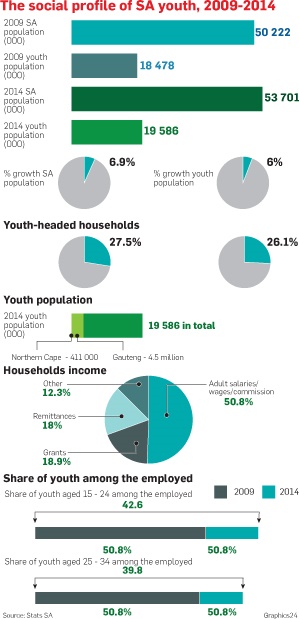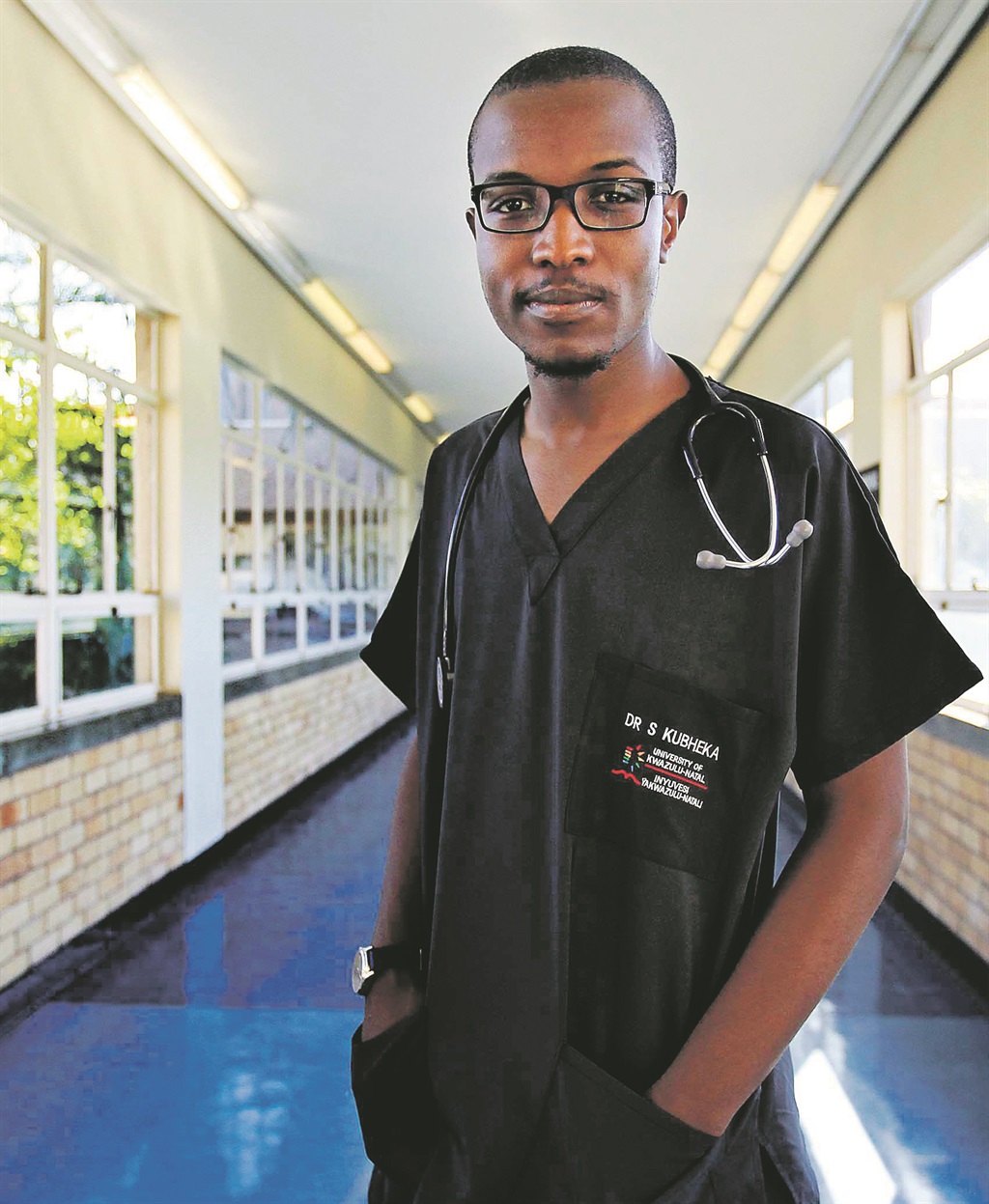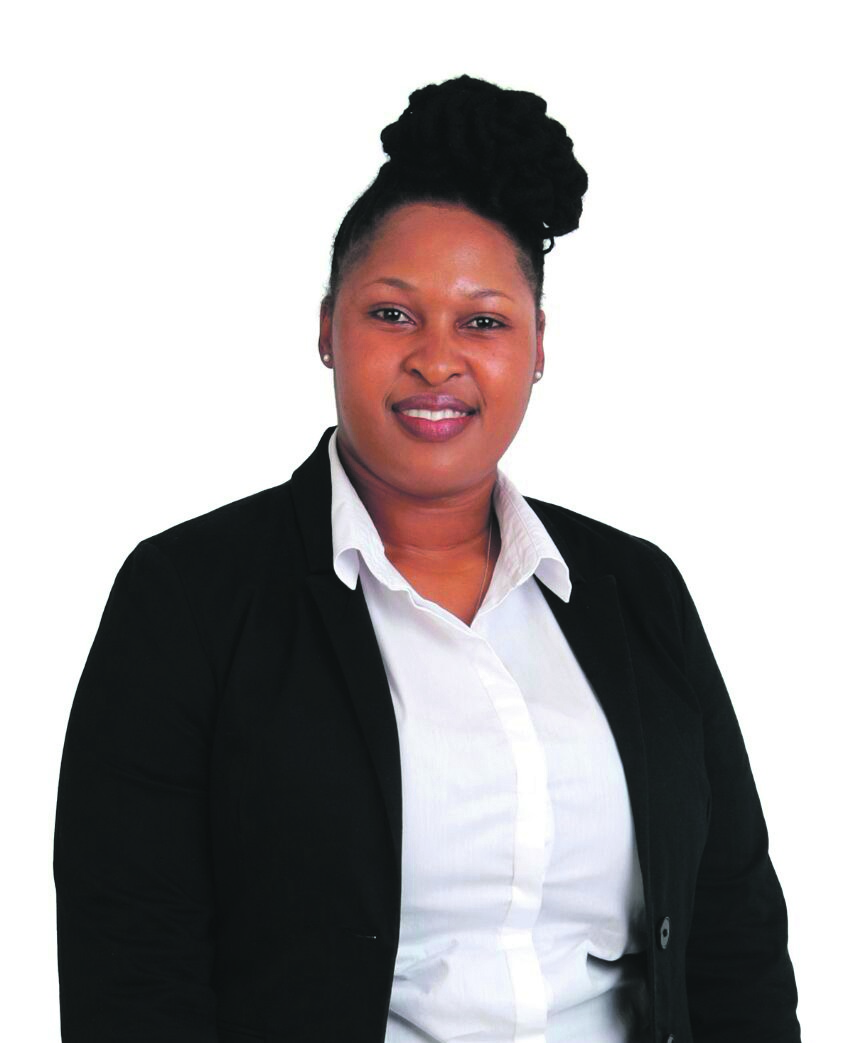The future of South Africa’s youth looks bleak. More than 20 years into democracy, young people are still languishing in poverty and are plagued by crime, violence, unemployment and lack of education.
This is according to new research released this week, which shows that almost two-thirds of South Africans believe the country is headed in the wrong direction.
Pan-African research company Afrobarometer on Wednesday published startling findings into how South Africans feel about socioeconomic issues.
The survey has not covered the effect of new political developments following the axing of finance minister Nhlanhla Nene on December 19 last year and the ground-breaking Constitutional Court ruling that led to President Jacob Zuma apologising to the nation.
This is because the survey was conducted between August and September last year, when 2 400 adult citizens were interviewed, giving general insights into South Africans’ attitudes towards democracy, governance and socioeconomic conditions during that period.
The survey said 64% of South Africans felt that the government was doing a poor job of managing the economy. It is the highest disapproval rating among 11 countries in southern Africa, and the figure is up by 18 percentage points from 2011.
More than half of South Africans rate the country’s economic situation as “fairly bad” or “very bad”, while 36% are unhappy with their living conditions.
Looking ahead, 29% of respondents said that they foresaw the economic climate worsening during the next 12 months.
On average, only 37% of South Africans believe that life has improved since 1994, based on a range of issues such as personal safety, employment opportunities and racial relations.
And another survey, conducted by Stats SA and released on Tuesday, profiled the social status of young people between the ages of 15 and 34, and revealed a different problem.
It showed that millions of young people were living below the breadline.
About 70% of South Africa’s 20 million young people were more likely to be victims and perpetrators of assault, robbery and property theft than adults (35 years and above).
Unemployment also continued to rise during the years under review, jumping from 57.4% in 2009 to 60.2% in 2014.
The increase was slightly higher among those aged 15 to 24 (1.7%) than for those between 25 and 34 (1.2%).
The report, released by Statistician-General Pali Lehohla, also revealed that the number of young people living in informal and traditional dwellings decreased between 2009 and 2014.
Youth-headed households showed a slight decline from 27.5% in 2009 to 26.1% in 2014.
City Press spoke to four people about the findings of the survey.
Sandile Kubheka — The graduate
Many would refer to Dr Kubheka (23) as a beacon of hope for South Africa.
Despite coming from a humble background, in which his mother had to work hard to supplement his tuition fees, he still managed to get through medical school and complete his MBChB degree at the University of KwaZulu-Natal at the tender age of 20. Today he is doing community service at Madadeni provincial hospital in Newcastle, KwaZulu-Natal.
Kubheka made history two years ago when he became the youngest doctor to qualify in South Africa. He said on Friday that while he understood the challenges facing young people today, they should not be distracted by their difficult circumstances.
“We have all faced some challenges in life, one way or another, but we can pull through them. I studied through bursaries. This had to be supplemented by my mother’s salary as a sales manager at Shoprite.
“It was difficult for her to raise money for tuition fees, meals and my accommodation as she had four other children to take care of.”
Kubheka said he understood the hopelessness faced by thousands of unemployed graduates and other young people who could not further their studies for different reasons, but he believed that “giving up should not be an option”.
Dineo Sehlabi — The unemployed
Three years after completing a three-year travel and tourism diploma, Sehlabi from Pretoria is still struggling to find a job.
She completed matric and went on to study travel and tourism, as it seemed like “a lucrative and exciting career choice, given that I had always wanted to get into the travel and hospitality industry”, she says.
“I thought it would be easier getting a job in this industry because tourism continues to grow and will never die.”
However, Sehlabi (27) feels she is getting a raw deal by not finding employment in the field, and this is slowly killing her spirit.
“I went to travel agencies, hotels, recruitment agencies – any place I thought would hire a travel and tourism graduate – to drop off my CV, but they all wanted experience,” she said.
Sehlabi is fortunate to be supported financially by her parents, who are both employed, while she is still on the job search.
As Freedom Day approaches, Sehlabi said she believed that being unemployed meant less freedom for her as she was dependent on her parents.
“I feel I do not have much freedom in this situation. When you have a job, you have your own life and you can do your own thing,” she said.
Mbekezeni Zaba — The entrepreneur
For Durban printing shop owner Zaba, government’s affirmative action policies had good intentions, but they have failed to benefit the majority of those they were meant to help.
This is the only misgiving the 38-year-old father of one has about our young democracy.
Zaba moved to Durban from Johannesburg about 10 years ago to try to break into the business world. He has been running his copy house and conferencing business out of Durban’s Berea Centre since 2008, having formerly worked for a video conferencing company. “I think the BEE policies are great. It is sad that everything has become about tenderpreneurs,” he said.
Another survey, released on April 6 by the SA Institute of Race Relations, found that while the majority of citizens felt that affirmative action had helped poor black South Africans to improve their lives, 64% had not seen this happen in their community.
Nearly 63% of black respondents had seen no benefits of affirmative action in their communities, compared with 79.7% of coloureds, 78.1% of Indians and 76.4% of whites.
The majority of respondents (70%) wanted appointments to be made on the basis of merit, with special training for the disadvantaged groups.
Nelisiwe Mchunu — The street vendor
Mchunu, a 58-year-old cooldrink and sweet vendor, has been working the same stretch of Durban’s South Beach since 1987.
Mchunu said that while she
was aware of government policies aimed at boosting small black business, she has had no support from local or provincial government since South Africa became a democracy in 1994.
“Nobody helped us [during apartheid] and nobody is helping us now,” said Mchunu, who lives in KwaMashu with her family.
She had heard about training and assistance to build women’s businesses.
Although she has attended meetings for this purpose, “nobody has done anything”.
“I buy my own stock, pay my own licences, and then there’s talk and then nothing,” she emphasised.
Mchunu said she had also observed that big business had become “stingier” towards small vendors in post-apartheid South Africa.
While things were bad in apartheid days, at least some suppliers gave discounts to entrepreneurs, she said.
“Maybe two or three boxes of chips for free that you could sell. Now they don’t.”
– Additional reporting by Paddy Harper
TALK TO US
Do you see more work opportunities opening up in SA in the near future?
SMS us on 35697 using the keyword YOUTH and tell us what you think. Please include your name and province. SMSes cost R1.50




 Publications
Publications
 Partners
Partners













